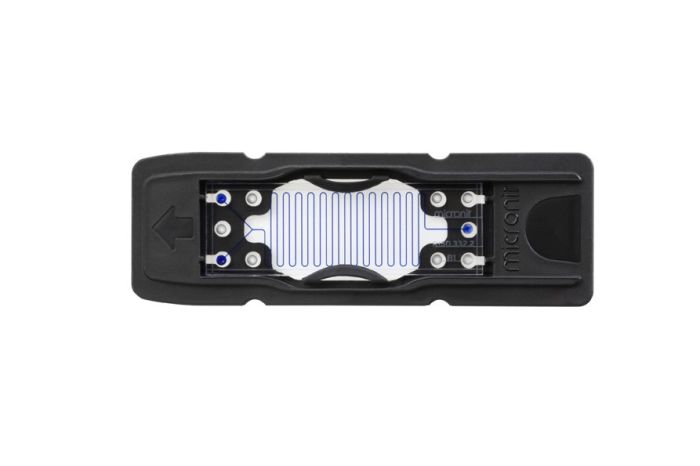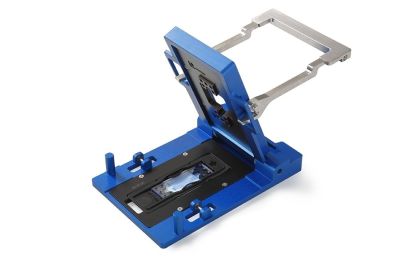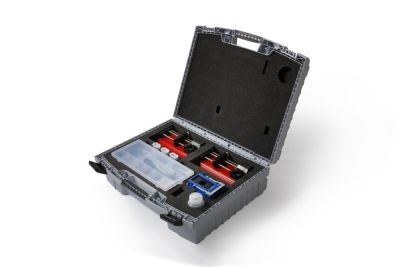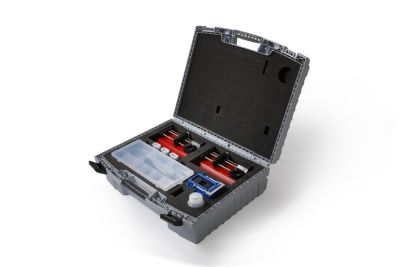shopping_basket
Serpentine channel / Microreactor, 20x50µm, 342mm length
SKU
11003694
Availability:
check_circle In stock
$349.69
per pack of 3
Flow cell with a serpentine channel with a length of 342mm. Channel width: 50µm, channel height: 20µm.
The chip has a 145µm thick bottom and is manufactured from D263 glass.
Application possibilities
This product is designed for observation purposes and offers sublime optical performance in combination with microscopy. This allows high resolution imaging.
Unique selling points
- For cell up to 10µm in diameter.
- 342mm of observation length, 26 meanders of 12mm
- Thin bottom, 145µm channel bottom thickness (#1 coverslip)
- Low autofluorescence.
- Manufactured from high-end glass, channels are extremely smooth and fully transparent.
Key features of the product are:
| SKU | Number of inlets | Number of outlets | Channel width | Flat channel area width | Channel height | Glass height on top of channel | Glass height below channel | Chip height |
| 11003694 | 2 | 1 | 50µm | 10µm | 20µm | 1100µm | 145µm | 1245µm |
Interfacing
This product is compatible with our .
Because of the limited chip thickness it’s necessary to use the metal strips included with the holder, see here for more information.
| Unit of measurement | pack of 3 |
|---|---|
| Interface type | Topconnect |
| Chip material | Borosilicate glass |
| Chip thickness | 1245µm |
| Number of inlets | 2 |
| Number of outlets | 1 |
| Channel width | 50µm |
| Internal volume | Internal volume 0.3µl |
| Bottom thickness | 145µm bottom layer |
| Max. cell height | 10µm |
| Coating | No coating (hydrophilic) |
| Icon | Label | Description | Type | Size | Download |
|---|---|---|---|---|---|
 | Drawing R50.332.3 | Serpentine 20x50µm, 342mm | 79.1 KB | Download |
Customer Questions
We found other products you might like!
- Product bundle with interfacing and microfluidic chips
From $2,252.24
To $24,165.35
- Observation starter kit - topconnect (incl. syringe pumps)
As low as $4,160.72
- Mixer en Reactor starter kit - topconnect (incl. syringe pumps)
As low as $4,160.72




